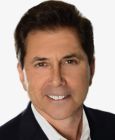
Compassion Fatigue
Tips on Compassion Fatigue
On caregiving, compassion fatigue, burnout, healthcare, reform.
Posted June 5, 2010
Compassion fatigue is a secondary traumatic stress condition that is impacting the lives of professional caregivers and family caregivers all around our country, and of course abroad.
It is difficult for me to imagine that a United States HealthCare System that has been mired in one of the most contentious debates this country has ever known has all but swept the steady decompensation of the healthcare worker or the medical effects of the impact caregiving takes on the American family today under the proverbial denial rug,
And yet, they may be the most powerful answer to healthcare cost containment around, if mobilized and trained properly. After all, wasn't this process supposed to be a foreword thinking process on new approaches to health delivery, cost containment, and the future of healthcare in this country?
Did any of the members of Congress have an idea at over 75 percent of medical and behavioral care in our country is provided by family caregivers?
And does anyone realize that these caregivers are dying, getting sick, depressed, anxious, and losing their jobs, and our healthcare system either has been oblivious or financially so short-sighted as not to create a plan of action to assist them?
After all, caregivers both family and professional are literally providing billions and billions of dollars of care. If they wanted to say "STOP" and say to Doctors and hospitals around the country, "we need help to take care of our loved ones properly," the solution would fall on the American taxpayer to underwrite. So far caregivers have been very kind to our system. Don't you think?
As I travel around the country in the next weeks, this blog will focus on the 50 million + caregivers struggling day-to-day to take care of themselves, their children, their parents, and their spouses.
This blog will bring in countless people who have felt that caregiving was their responsibility in life; not to ask for help, place a codependent mask of perfectionism and martyrdom on, forsake their own health and path of truth and authenticity and take care of others.
We will get into the reasons that we find ourselves as martyrs as both family and professional caregivers. The articles throughout the next 45 days will oscillate from the family caregiver to the professional caregiver, telling stories, and doing its best to offer solutions.
The following suggestions come from Dr. Pfifferling who is director of the Center for Professional Well-Being in Durham, N.C., which specializes in physician stress management. He is also a clinical associate professor at the University of North Carolina, Chapel Hill. No doubt he is also a disciple of the man responsible for me becoming a Compassion Fatigue Therapist today, Dr. Charles Figley, formerly of Florida State University.
1. Spend plenty of quiet time alone. Learning mindfulness meditation is an excellent way to ground yourself in the moment and keep your thoughts from pulling you in different directions. The ability to reconnect with a spiritual source will also help you achieve inner balance and can produce an almost miraculous turnaround, even when your world seems its blackest.
2. Recharge your batteries daily. Something as simple as committing to eat better and stopping all other activities while eating can have an exponential benefit on both your psyche and your physical body. A regular exercise regimen can reduce stress, help you achieve outer balance, and re-energize you for time with family and friends.
3. Hold one focused, connected, and meaningful conversation each day. This will jump-start even the most depleted batteries. Time with family and close friends feeds the soul like nothing else and sadly seems to be the first thing to go when time is scarce.
4. We advise our compassion-fatigued clients not to make any major life decisions until they've recovered physically, emotionally, and spiritually. This is perhaps the most important advice we can give. Don't quit your job, get a divorce, have an affair, or spend your money on a lavish trip or a new sports car. It may feel great at the time, but a few days or weeks later you'll find yourself waking up to the same set of problems.
5. Similarly, blaming administration, staff, colleagues or the "system" will do you no good. Being adversarial will only exhaust you further and prevent the deeper healing that needs to take place. The same goes for looking for another job. Wait until you can see things more clearly and have gotten the stress in your life under control.
6. Don't spend your energy complaining. We also advise that you avoid commiserating with discontented colleagues. You've heard the old saying "misery loves company." It's easy to fall into the habit of complaining when you're consumed by compassion fatigue, but it will only make you feel worse. There are other, more constructive environments to share your feelings.
7. Compassion fatigue can make you vulnerable to addictive behaviors and substance abuse. We've seen many clients try to deal with compassion fatigue by working longer and harder. Others self-medicate with alcohol and prescription drugs. There are a whole host of other addictive behaviors, including sex, that are used to relieve personal pain. Don't let yourself abuse work, alcohol, or drugs and don't fall prey to a quick fix. Just as drugs can be addictive and eventually cause a whole different set of problems, the quick fix almost always ends up complicating an already overburdened escalating the downward spiral.



